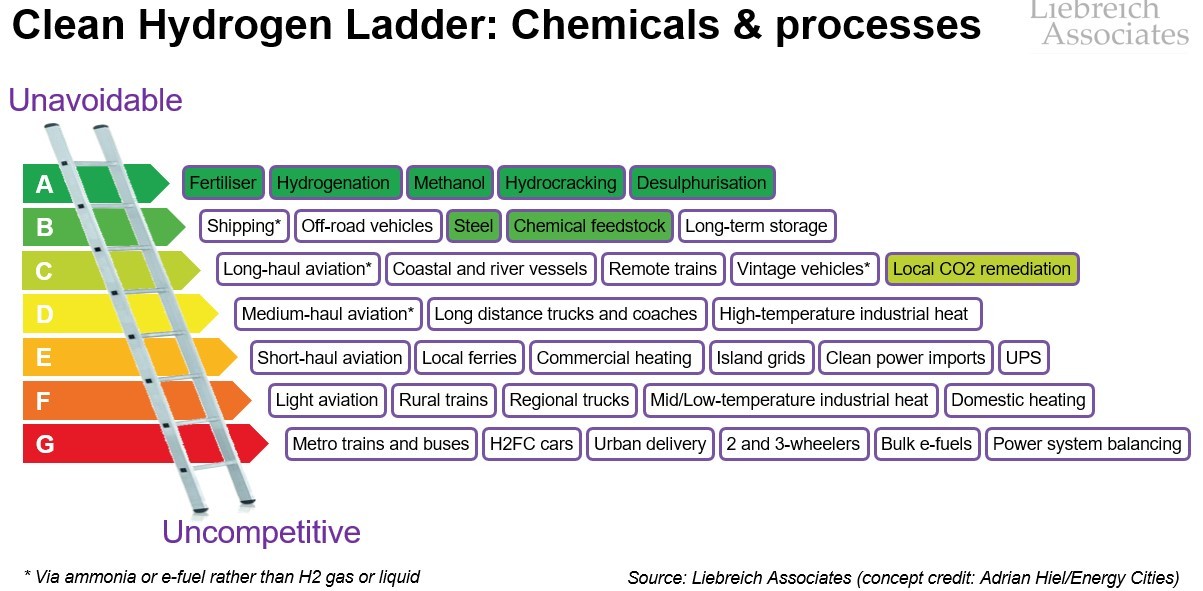UnHerd: $10 a barrel for oil? The age of the electric car is closer than you think
Written for UnHerd, click here to read the online article
Former Saudi oil minister Sheikh Yamani famously predicted that “the Stone Age did not end for lack of stone, and the Oil Age will end long before the world runs out of oil.” He was convinced that within a few years of the start of the millennium, hydrogen would begin to replace oil as the world’s main transport fuel.
What Yamani missed, but Elon Musk, founder of electric vehicle company Tesla, spotted, was that battery technology was developing so fast that electric cars would soon match the performance of internal combustion cars, and then comprehensively outcompete them.

TESLA CEO ELON MUSK LAUNCHES THE TESLA MODEL X CROSSOVER SUV IN 2015. THE TELSA HIGH PERFORMING ELECTRIC CARS ARE PRICEY, BUT IT WON’T BE LONG BEFORE THAT LEVEL OF PERFORMANCE WILL BE AFFORDABLE. CREDIT: GETTY IMAGES/ JUSTIN SULLIVAN / STAFF
The top-of the range Tesla SUV accelerates faster than a Bugatti Veyron, but can also seat seven, carry as much luggage as a Volvo estate and pull a caravan. It costs less than half of its petrol or diesel equivalent refuel, and with a tenth of the moving parts, has lower maintenance costs. Electric cars are smooth, quiet, and quick off the lights. They are also far superior as a platform for all the automation and communication technologies that are set to transform our driving experience and road safety.
So why do electric vehicles still make up such a small percentage of vehicle sales, less than 2% in the UK? Three reasons – range, charging time and infrastructure – but all of them will soon be history.
Tesla has shown that it is perfectly feasible to build an electric car with 300 miles driving range – as long as you’re not overly worried about price. But soon that sort of performance will be affordable: battery costs have fallen 70% in the last five years, and the next ten years will see them fall another 70%. Electric cars are already often cheaper than a petrol or diesel car if you include running costs, and that’s excluding subsidies.
By 2025 electric cars will start winning on showroom price alone. No technological breakthroughs are needed (although thousands of researchers are looking for them), just the same sort of scale-driven cost reductions that we have seen in flat-screen TVs, solar panels, even combustion engines in their time.
What about charging time? The current generation of rapid-chargers already allow you to add 170 miles of range in 30 minutes; the next generation will allow you to fill your car more quickly than you can empty your bladder and pick up a pint of milk.
Let’s bust a few more myths: there are no shortages of lithium, nickel, cobalt and copper that won’t be fixed by investment; the ‘rare earths’ used in modern electric motors are not that rare; putting the kettle on while charging an electric car won’t blow a fuse – your charger will just slow down for a few minutes; the UK won’t need 30 new nuclear power stations to meet the additional electricity demand – National Grid estimates we will need around 5GW of additional peak power, an increase of just 10%.

CHILDREN AT PRIMARY SCHOOL IN NORTH LONDON TAKE PART A CAMPAIGN AGAINST ‘DIRTY AIR’. GOVERNMENTS AROUND THE WORLD ARE INCREASINGLY CONCERNED ABOUT AIR POLLUTION, AND SOME HAVE SET DATES FOR OUTLAWING PETROL AND DIESEL VEHICLES. CREDIT: CHRIS RADBURN/PA ARCHIVE/PA IMAGES
Policy-makers have woken up to electric vehicles as a way of solving the horrendous problem of urban air pollution. Several major world cities, including Paris, Mexico City, Madrid, Athens, Stuttgart and Oxford, have already decided to ban internal combustion cars within a few years, others are sure to follow.
Norway, where two out of five new cars already have plugs, will ban the sale of internal combustion cars and vans by 2025. Holland and India are outlawing the sale of petrol or diesel cars after 2030. China – salivating over the opportunity to take leadership of the world’s car industry – is mulling a ban by the same year. The French have gone for 2040, as has the British Government. Even Angela Merkel has accepted as inevitable that Germany will eventually ban internal combustion cars.
Car companies are falling over each other to catch the electric drive train. Volkswagen – still reeling from Dieselgate – has announced it will launch 50 electric models by 2025, which it expects to account for a quarter of its sales. All Volvo models launched from 2019 will be electric or hybrid. Mercedes Benz is investing $10 billion to launch 10 electric models by 2020. General Motors has announced it is committed to an all-electric future. Nissan has produced more electric vehicles than Tesla, and Chinese company BYD nearly as many. Every week brings more announcements.
The impact on oil demand may not be immediate but it will be profound. Cars and vans account for around 30% of global oil demand, but heavier trucks and buses will also go electric in the fullness of time, threatening a further 15% fall in demand. Heavier vehicles require bigger batteries and a more powerful charger, but the economics are unchanged.
Might hydrogen still derail this vision of the future, suddenly leapfrogging advances in battery technology? After all we have certainly seen governments back the wrong technologies, most recently when they encouraged the use of diesel to reduce CO2 emissions.
But in a word, no. The laws of thermodynamics mean that hydrogen production is inherently inefficient. You can produce it from natural gas, but you are much better off just consuming the gas directly. Or you can use electrolysis, but by the time you have generated hydrogen, compressed and stored it, moved it around, and then used it to regenerate electricity, you’ve squandered some 70% of input energy. Hydrogen may perhaps find a role providing seasonal energy storage, or as a chemical feedstock, or powering driverless long-distance trucking. But as the world’s main transport fuel it is simply dead before departure.
What about the remaining 55% of global oil demand? Oil will still be used in shipping and aviation for many years, and in the petrochemicals industry. But over a multi-decadal time-frame I would be very surprised if we did not see breakthroughs which dramatically erode those markets too. In an era of low-cost gene editing, additive manufacturing, graphene, designer materials, nanoscale composites, machine learning and pervasive connectivity, it’s fanciful to think that the global economy will remain forever dependent on fossilised swamp goo.
So Sheikh Yamani was right, the writing is on the wall for oil, though not for the reason he thought. Oil’s long-term future will not be – as Peak Oil doomsayers so fashionable during oil price spikes would have us believe – that it becomes more and more sought after at ever-higher prices. It is that it will becomes less and less critical to the world’s economy over time, and its price will wither.
$10 a barrel in our lifetimes? Why not!
Terms of use: photos and other media may be used exclusively for the purpose of publicising an upcoming or past event involving Michael Liebreich, or to illustrate an article written by him. Their use must be accompanied by a clear indication of copyright in the following form:
© Liebreich Associates/name of photographer. Photos or other media downloaded in this way remain the property of Liebreich Associates Ltd. Any infringement of these terms of use may result in legal action by Liebreich Associates Ltd or by the respective photographer or rights holder.





